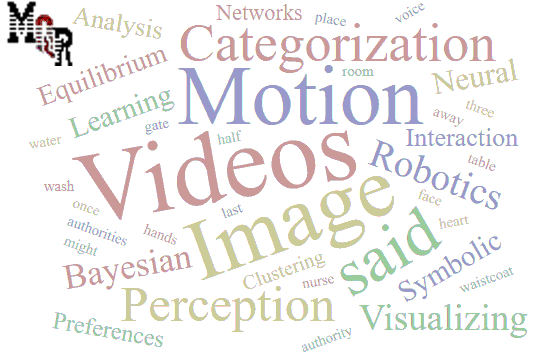Estudio de la cientificidad y la efectividad de la técnica Mindfulness.
DOI:
https://doi.org/10.56048/MQR20225.7.4.2023.879-896Palabras clave:
mindfulness, efectividad, ansiedad, depresión, estrésResumen
Introducción: El mindfulness se presenta en la actualidad como una técnica efectiva en el tratamiento de diversas psicopatologías, siendo enmarcada dentro de las terapias de tercera generación. Objetivo: El presente estudio se enfoca en evaluar la efectividad de la técnica mindfulness como un recurso terapéutico para la reducción de trastornos psicológicos. Metodología: Se realizó una revisión documental de la literatura compuesta por 41 artículos, siguiendo las pautas PRISMA y utilizando la herramienta de evaluación crítica AMSTAR para la selección y calidad de los datos recopilados. Resultados: se ha evidenciado que la técnica mindfulness muestra resultados altamente favorables en trastornos como la ansiedad, la depresión y los trastornos límite de la personalidad. Sin embargo, en lo que respecta a trastornos como la esquizofrenia y el trastorno bipolar, se sugiere la necesidad de llevar a cabo investigaciones adicionales o de ampliar el tamaño de la muestra de participantes. Asimismo, se recomienda un seguimiento a largo plazo para evaluar la sostenibilidad de la reducción de la sintomatología en estos casos. Conclusiones: Uno de los hallazgos más significativos de este estudio es que la técnica mindfulness demuestra ser más efectiva cuando se combina con otras modalidades terapéuticas, lo que permite obtener resultados terapéuticos más sólidos y duraderos. Estos resultados respaldan la creciente aplicación de mindfulness en la práctica clínica como un recurso valioso para el tratamiento de una variedad de trastornos psicológicos.
Descargas
Métricas
Cited
DOI: 10.56048![]()
Citas
Alsaraireh, F. A., y Aloush, S. M. (2017). Mindfulness Meditation Versus Physical Exercise in the Management of Depression Among Nursing Students. Journal of Nursing Education, 56 (10), 599-604. https://dx.doi.org/10.3928/01484834-20170918-04. PMID: 28972629.
Barbosa, M. R., Penaforte, F. R. de O., y Silva, A. F. de S. (2020). Mindfulness, mindful eating e comer intuitivo na abordagem da obesidade e transtornos alimentares. SMAD. Revista Eletrônica Saúde Mental Álcool e Drogas, 16(3), 118-135. https://dx.doi.org/10.11606/issn.1806-6976.smad.2020.165262.
Barr, N., Davis, J. P., Diguiseppi, G., Keeling, M., y Castro, C. (2022). Direct and indirect effects of mindfulness, PTSD, and depression on self-stigma of mental illness in OEF/OIF veterans. Psychological Trauma: Theory, Research, Practice, and Policy, 14(6), 1026–1034. https://doi.org/10.1037/tra0000535.
Bergen-Cico D., Possemato K., y Cheon S. (2013). Examining the Efficacy of a Brief Mindfulness-Based Stress Reduction (Brief MBSR) Program on Psychological Health. Journal of American College Health, 61(6), 348-360. https://doi.org/10.1080/07448481.2013.813853.
Bostock, S., Crosswell, A. D., Prather, A. A., y Steptoe, A. (2019). Mindfulness on-the-go: Effects of a mindfulness meditation app on work stress and well-being. Journal of Occupational Health Psychology, 24(1), 127-138. https://doi.org/10.1037/ocp0000118.
Carmona, I., Farrés, C., Elices, M., Soler, J., Domínguez-Clavé, E., Martín-Blanco, A., Pomarol-Clotet, E., Salvador, R., Martinez-Horta, S., y Pascual, J. C. (2019). Effects of mindfulness training on the default mode network in borderline personality disorder. Clin Psychol Psychother, 26(5), 562-571. https://doi.org/10.1002/cpp.2382
Chadwick P, Kaur H, Swelam M, Ross S, Ellett L. (2011). Experience of mindfulness in people with bipolar disorder: a qualitative study. Psychother Res, 21(3), 277-85. https://doi.org/10.1080/10503307.2011.565487.
Christopher, M., Hunsinger M, Goerling LRJ, Bowen S, Rogers BS, Gross CR, Dapolonia E, Pruessner JC. (2018). Mindfulness-based resilience training to reduce health risk, stress reactivity, and aggression among law enforcement officers: A feasibility and preliminary efficacy trial. Psychiatry Res, 264, 104-115. https://doi.org/10.1016/j.psychres.2018.03.059.
Cladder-Micus MB., Speckens AEM., Vrijsen JN., Donders AR, Becker ES, Spijker J. (2018). Mindfulness-based cognitive therapy for patients with chronic, treatment-resistant depression: A pragmatic randomized controlled trial. Depress Anxiety, 35(10), 914-924. https://doi.org/10.1002/da.22788.
Dundas I, Thorsheim T, Hjeltnes A, Binder PE. (2016). Mindfulness Based Stress Reduction for Academic Evaluation Anxiety: A Naturalistic Longitudinal Study. J College Stud Psychother, 30(2), 114-131. https://doi.org/10.1080/87568225.2016.1140988.
Errasti, J., Al-Halabi, S., y López, E. M. (2022). Atención plena (Mindfulness): por qué es posible que funcione y por qué es seguro que triunfe. Psicología Conductual, 30(1), 235-248. https://doi.org/10.51668/bp.8322112s.
Farb N, Anderson A, Ravindran A, Hawley L, Irving J, Mancuso E, Gulamani T, Williams G, Ferguson A, Segal ZV. (2018). Prevention of relapse/recurrence in major depressive disorder with either mindfulness-based cognitive therapy or cognitive therapy. J Consult Clin Psychol, 86(2), 200-204. https://doi.org/10.1037/ccp0000266.
Feliu-Soler A, Pascual JC, Elices M, Martín-Blanco A, Carmona C, Cebolla A, Simón V, Soler J. (2017). Fostering Self-Compassion and Loving-Kindness in Patients With Borderline Personality Disorder: A Randomized Pilot Study. Clin Psychol Psychother, 24(1), 278-286. https://doi.org/10.1002/cpp.2000.
Fuchs, CH., Haradhvala N., Evans, DR., Nash, JM., Weisberg, RB., Uebelacker, LA. (2016). Implementation of an acceptance- and mindfulness-based group for depression and anxiety in primary care: Initial outcomes. Fam Syst Health, 34(4), 386-395. https://doi.org/10.1037/fsh0000237.
Goldin, PR., Morrison, A., Jazaieri, H., Brozovich, F., Heimberg, R., Gross, JJ. (2016). Group CBT versus MBSR for social anxiety disorder: A randomized controlled trial. J Consult Clin Psychol, 84(5), 427-437. https://doi.org/10.1037/ccp0000092.
González, M., Borao, L., Herrera-Mercadal, P., Campos, D., López-del-Hoyo, Y., Morillo, H., y García-Campayo, J. (2019). Habilidades de Mindfulness y Cognición Social en la predicción de la sintomatología afectiva en Esquizofrenia, Trastorno Obsesivo-Compulsivo y controles sanos. Revista De Psicopatología Y Psicología Clínica, 24(1). https://doi.org/10.5944/rppc.24170
Hanssen, I., Huijbers, MJ., Lochmann-van Bennekom, M., Regeer, EJ., Stevens, M., Evers, S., Wensing, M., Kupka, RW., Speckens, AEM. (2019). Study protocol of a multicenter randomized controlled trial of mindfulness-based cognitive therapy and treatment as usual in bipolar disorder. BMC Psychiatry, 19(1), 130. https://doi.org/10.1186/s12888-019-2115-6.
Hayes, S., Luoma, J., Bond, F., Masuda, A., y Lillis J. (2006). Acceptance and commitment therapy: model, processes and outcomes. Behav Res Ther, 44(1), 1-25. https://doi.org/10.1016/j.brat.2005.06.006.
Hodann-Caudevilla, RM., Díaz-Silveira, C., Burgos-Julián, FA., Santed, MA. (2020). Mindfulness-Based Interventions for People with Schizophrenia: A Systematic Review and Meta-Analysis. Int J Environ Res Public Health, 17(13), 4690. https://doi.org/10.3390/ijerph17134690.
Hoge, EA., Bui, E., Palitz, SA., Schwarz, NR., Owens, ME., Johnston, JM., Pollack, MH., Simon, NM. (2018). The effect of mindfulness meditation training on biological acute stress responses in generalized anxiety disorder. Psychiatry Res, 262, 328-332. https://doi.org/10.1016/j.psychres.2017.01.006.
Kabat-Zinn, J. (1994). Wherever You Go, There You Are: Mindfulness Meditation in Everyday Life. NY: Hyperion.
Karaca, A., Şişman NY. (2019). Effects of a Stress Management Training Program With Mindfulness-Based Stress Reduction. J Nurs Educ, 58(5), 273-280. https://doi.org/10.3928/01484834-20190422-05.
Kocovski, NL., Fleming, JE., Blackie, RA., MacKenzie, MB., Rose, AL. (2019). Self-Help for Social Anxiety: Randomized Controlled Trial Comparing a Mindfulness and Acceptance-Based Approach With a Control Group. Behav Ther, 50(4), 696-709. https://doi.org/10.1016/j.beth.2018.10.007.
Kraemer, K. M., O'Bryan, E. M., Johnson, A. L., y McLeish, A. C. (2017). The role of mindfulness skills in terms of anxiety-related cognitive risk factors among college students with problematic alcohol use. Substance abuse, 38(3), 337–343. https://doi.org/10.1080/08897077.2017.1340394
Langer, ÁI., Cangas, AJ., Salcedo, E., Fuentes, B. (2012). Applying mindfulness therapy in a group of psychotic individuals: a controlled study. Behav Cogn Psychother, 40(1), 105-109. https://doi.org/10.1017/S1352465811000464. PMID: 21902854.
Lebares, CC., Hershberger, AO., Guvva, EV., Desai, A., Mitchell, J., Shen, W., Reilly, LM., Delucchi, KL., O'Sullivan, PS., Ascher, NL., Harris, HW. (2018). Feasibility of Formal Mindfulness-Based Stress-Resilience Training Among Surgery Interns: A Randomized Clinical Trial. JAMA Surg, 153(10), e182734. https://doi.org/10.1001/jamasurg.2018.2734.
Lee, K., Bowen, S., y An-Fu, B. (2011). Psychosocial outcomes of mindfulness-based relapse prevention in incarcerated substance abusers in Taiwan: A preliminary study. Journal of Substance Use, 16(6), 476-483. https://doi.org/10.3109/14659891.2010.505999.
Linares, L., Jauregui, P., Herrero-Fernández, D., Estévez, A. (2016). Mediating Role of Mindfulness as a Trait Between Attachment Styles and Depressive Symptoms. J Psychol, 150(7), 881-896. https://doi.org/10.1080/00223980.2016.1207591. PMID: 27467235.
Lopez-Maya, E., Olmstead, R., Irwin, MR. (2019). Mindfulness meditation and improvement in depressive symptoms among Spanish- and English-speaking adults: A randomized, controlled, comparative efficacy trial. PLoS One, 14(7), e0219425. https://doi.org/10.1371/journal.pone.0219425.
Memon, AA., Sundquist, K., Ahmad, A., Wang, X., Hedelius, A., Sundquist, J. (2017). Role of IL-8, CRP and epidermal growth factor in depression and anxiety patients treated with mindfulness-based therapy or cognitive behavioral therapy in primary health care. Psychiatry Res, 254, 311-316. https://doi.org/10.1016/j.psychres.2017.05.012.
Morrison, AS., Mateen, MA., Brozovich, FA., Zaki, J., Goldin, PR., Heimberg, RG., Gross, JJ. (2019). Changes in Empathy Mediate the Effects of Cognitive-Behavioral Group Therapy but Not Mindfulness-Based Stress Reduction for Social Anxiety Disorder. Behav Ther, 50(6), 1098-1111. https://doi.org/10.1016/j.beth.2019.05.005.
Pérez, M., y Botella, L. (2006). Conciencia plena (mindfulness) y psicoterapia: Concepto, evaluación y aplicaciones clínicas. Revista de Psicoterapia, 17(66-67), 77-120.
Polusny, MA., Erbes, CR., Thuras, P., Moran, A., Lamberty, GJ., Collins, RC., Rodman, JL., Lim, KO. (2015). Mindfulness-Based Stress Reduction for Posttraumatic Stress Disorder Among Veterans: A Randomized Clinical Trial. JAMA, 314(5), 456-465. https://doi.org/10.1001/jama.2015.8361.
Rasmussen, MK., Pidgeon, AM. (2011). The direct and indirect benefits of dispositional mindfulness on self-esteem and social anxiety. Anxiety Stress Coping, 24(2), 227-233. https://doi.org/10.1080/10615806.2010.515681.
Ruiz, A., Díaz, M., y Villalobos, A. (2012). Manual de Técnicas de Intervención Cognitivo Conductuales. Descleé De Brouwer, S.A.
Schanche, E., Vøllestad, J., Binder, PE., Hjeltnes, A., Dundas, I., Nielsen, GH. (2020). Participant experiences of change in mindfulness-based stress reduction for anxiety disorders. Int J Qual Stud Health Well-being, 15(1), 1776094. https://doi.org/10.1080/17482631.2020.1776094.
Scott-Hamilton, J., Schutte, NS., Brown, RF. (2016). Effects of a Mindfulness Intervention on Sports-Anxiety, Pessimism, and Flow in Competitive Cyclists. Appl Psychol Health Well Being, 8(1), 85-103. https://doi.org/10.1111/aphw.12063. PMID: 26970111.
Secanell, I. L., y Núñez, S. P. (2019). Mindfulness y el abordaje del TDAH en el contexto educativo. Revista Brasileira de Educação Especial, 25(1), 175-188. https://doi.org/10.1590/s1413-65382519000100011
Segal, ZV., Anderson, AK., Gulamani, T., Dinh Williams, LA., Desormeau, P., Ferguson, A., Walsh, K., Farb, NAS. (2019). Practice of therapy acquired regulatory skills and depressive relapse/recurrence prophylaxis following cognitive therapy or mindfulness based cognitive therapy. J Consult Clin Psychol, 87(2), 161-170. https://doi.org/10.1037/ccp0000351. Epub 2018 Nov 15. PMID: 30431297.
Segovia, S. (2019). Monográfico Mindfulness. Revista de Investigación y Educación en Ciencias de la Salud. https://doi.org/10.37536/RIECS.2019.4.S1.126.
Simón, V. (2014). Aprender a practicar mindfulness (10th ed.). Barcelona: Sello Editorial.
Spek, AA., van Ham, NC., Nyklíček, I. (2013). Mindfulness-based therapy in adults with an autism spectrum disorder: a randomized controlled trial. Res Dev Disabil, 34(1), 246-253. https://doi.org/10.1016/j.ridd.2012.08.009.
Stefan, S. y David, D. (2020). Mindfulness in Therapy: A Critical Analysis. International Journal of Clinical and Experimental Hypnosis, 68(2), 167-182. https://doi.org/10.1080/00207144.2020.1720514
Stötter, A., Mitsche, M., Endler, P. C., Oleksy, P., Kamenschek, D., Mosgoeller, W., y Haring, C. (2013). Mindfulness-based touch therapy and mindfulness practice in persons with moderate depression. Body, Movement and Dance in Psychotherapy, 8(3), 183-198. https://dx.doi.org/10.1080/17432979.2013.803154.
Thomas, J., Raynor, M., y Bakker, M. (2016). Mindfulness-based stress reduction among Emirati Muslim women, Mental Health, Religion y Culture, 19(3), 295-304. https://doi.org/10.1080/13674676.2016.1168389.
Toledano, R. M., y Toledano Ramón, J. J. (2021). En busca del Bienestar. Herder.
Valikhani, A., Kashani, VO., Rahmanian, M., Sattarian, R., Rahmati Kankat, L., Mills, PJ. (2020). Examining the mediating role of perceived stress in the relationship between mindfulness and quality of life and mental health: testing the mindfulness stress buffering model. Anxiety Stress Coping, 33(3), 311-325. https://doi.org/10.1080/10615806.2020.1723006.
Vásquez, E. (2016). Mindfulness: Conceptos generales, psicoterapia y aplicaciones clínicas. Rev Neuropsiquiatr, 79(1), 42-51.
Wahbeh, H., Goodrich, E., Goy, E., Oken, BS. (2016). Mechanistic Pathways of Mindfulness Meditation in Combat Veterans With Posttraumatic Stress Disorder. J Clin Psychol, 72(4), 365-383. https://doi.org/10.1002/jclp.22255.
Whittemore, R., y Knafl, K. (2005). The integrative review: Updated methodology. Journal of Advanced Nursing, 52(5), 546-55.
Williams, C., Meeten, F., Whiting, S. (2018). 'I had a sort of epiphany!' An exploratory study of group mindfulness-based cognitive therapy for older people with depression. Aging Ment Health, 22(2), 208-217. https://doi.org/10.1080/13607863.2016.1247415.
Wong, SYS., Sun, YY., Chan, ATY., Leung, MKW., Chao, DVK., Li, CCK., Chan, KKH., Tang, WK., Mazzucchelli, T., Au, AML., Yip, BHK. (2018). Treating Subthreshold Depression in Primary Care: A Randomized Controlled Trial of Behavioral Activation With Mindfulness. Ann Fam Med, 16(2), 111-119. https://doi.org/10.1370/afm.2206.
Publicado
Cómo citar
Número
Sección
Categorías
Licencia

Esta obra está bajo una licencia internacional Creative Commons Atribución 4.0.
Los autores se comprometen a respetar la información académica de otros autores, y a ceder los derechos de autor a la Revista MQRInvestigar, para que el artículo pueda ser editado, publicado y distribuido. El contenido de los artículos científicos y de las publicaciones que aparecen en la revista es responsabilidad exclusiva de sus autores. La distribución de los artículos publicados se realiza bajo una licencia 
































































































